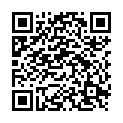|
|
|
| Module code: E601 |
|
3V+1U (4 hours per week) |
|
4 |
| Semester: 6 |
| Mandatory course: yes |
Language of instruction:
German |
Assessment:
Written examination
[updated 12.03.2010]
|
E601. Biomedical Engineering, Bachelor, ASPO 01.10.2011
, semester 6, mandatory course, course inactive since 28.11.2013
E601 Electrical Engineering, Bachelor, ASPO 01.10.2005
, semester 6, mandatory course
|
60 class hours (= 45 clock hours) over a 15-week period.
The total student study time is 120 hours (equivalent to 4 ECTS credits).
There are therefore 75 hours available for class preparation and follow-up work and exam preparation.
|
Recommended prerequisites (modules):
E104 Fundamentals of Electrical Engineering I
E203 Fundamentals of Electrical Engineering II
[updated 12.03.2010]
|
Recommended as prerequisite for:
|
Module coordinator:
Prof. Dr.-Ing. Dietmar Brück |
Lecturer:
Prof. Dr.-Ing. Dietmar Brück
[updated 12.03.2010]
|
Learning outcomes:
This module, which builds on the content of the lecture course Microprocessors†I, aims to teach students about the application of microcontrollers in areas of automation engineering. The course will discuss and illustrate in detail the interaction of the I/O modules needed to interface with external processes. After completing this course, students will understand the structure and function of a microcontroller system in automation applications (including the interfaces to communication bus systems) and will be able to operate the controller to accomplish a given task. The focus of this module is on practical applications.
[updated 12.03.2010]
|
Module content:
1.Operating principles of integrated units such as chip-select units, serial port
units, interrupt control units, bus interface units and execution units.
Processing of commands, command scope and memory access; using the ECB to solve
simple automation and instrumentation tasks; task specification and program
generation
2.Use of an assembler; transfer of programs into the target system; testing
programs for functionality and completeness
3.Use of bus systems and networks and interfacing with the ECB
4.To supplement the content of the lecture course, the lab course offers
supervised practical exercises and projects to further student understanding of
how individual components function.
[updated 12.03.2010]
|
Teaching methods/Media:
Overhead transparencies, lecture notes, video projector
[updated 12.03.2010]
|
Recommended or required reading:
At the beginning of the course, students will be issued with a CD containing all the teaching material used in this module. The CD also contains a complete and regularly updated list of recommended reading materials. As the teaching materials are partly in German and partly in English, international students with a good command of English should therefore be able to follow the lectures without difficulty.
Additional references:
80C186EB/80C188EB, Microprocessor Userís Manual, Intel,
C167CR Userís Manual V.2.0, Infineon Technologies, 03.96
C167CR Userís Manual V.3.1, Infineon Technologies, 2000
Instruction Set Manual V2.0, Infineon Technologies, 2001
Mikrocomputer, Martin Horacher, TU Wien, 1999
MC-Tools 15, Johannis, Feger + Co. Verlag 1994
Schultes / Pohle,80C166 Mikrocontroller, Franzis Verlag, 1994
Rolf Klaus, Der Mikrocontroller C167, VDF Hochschulverlag, 2000
[updated 12.03.2010]
|


